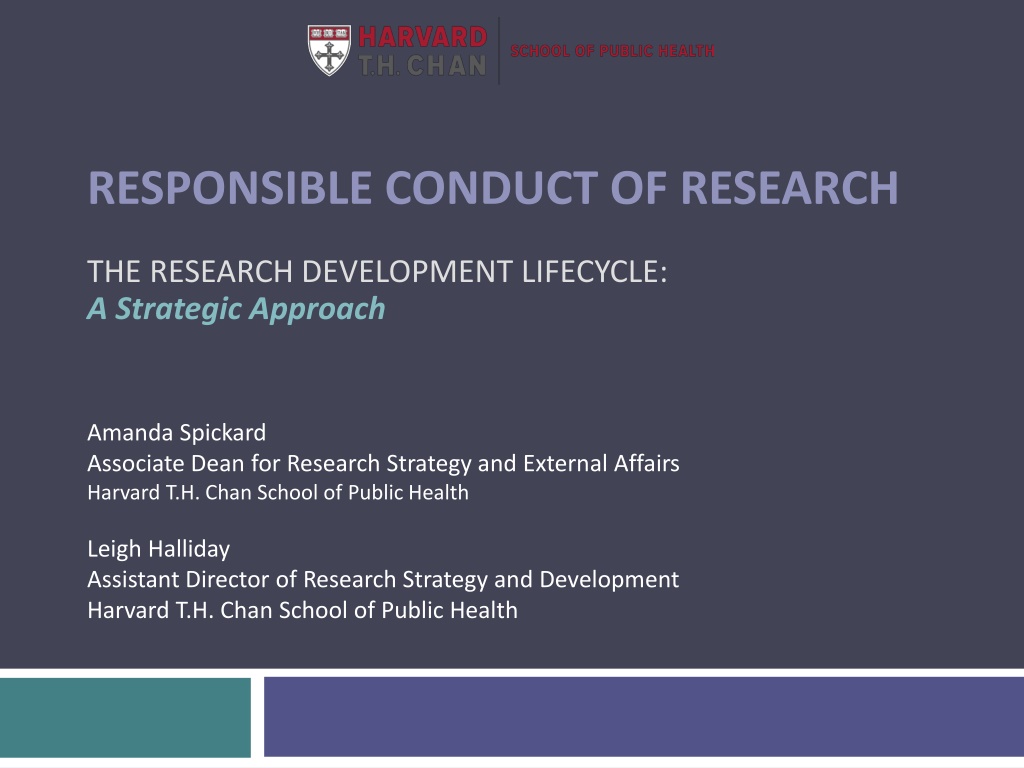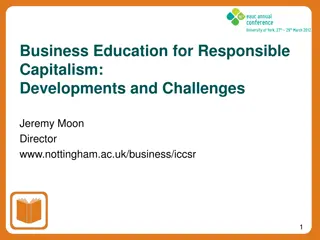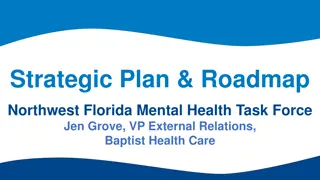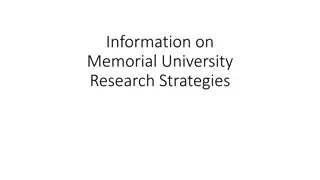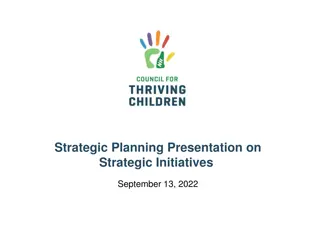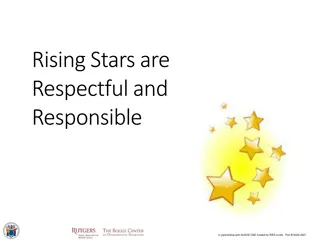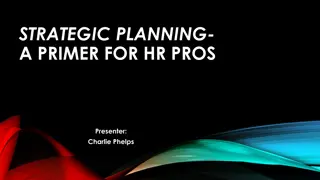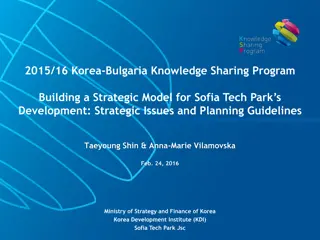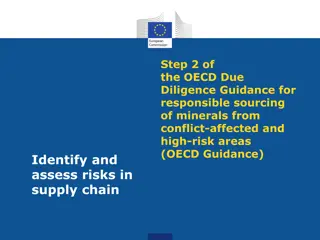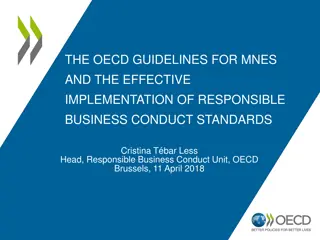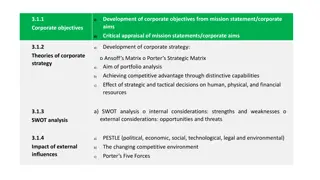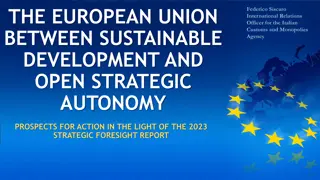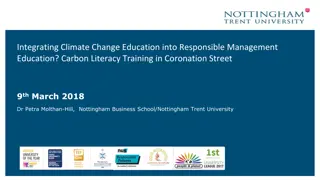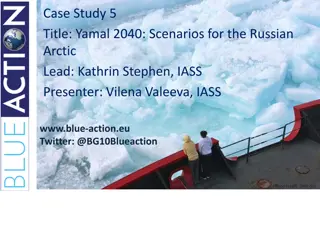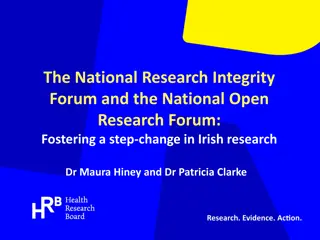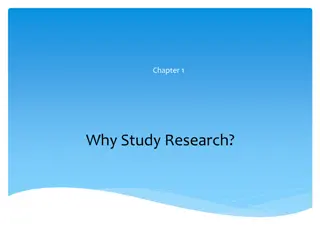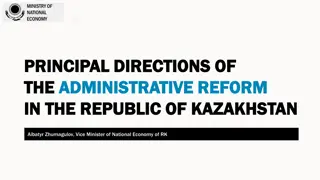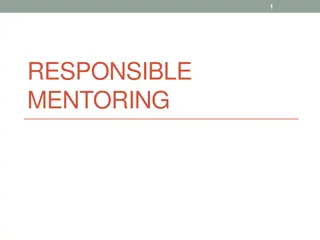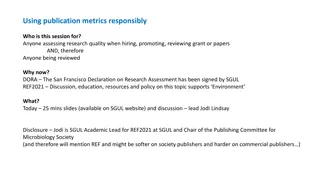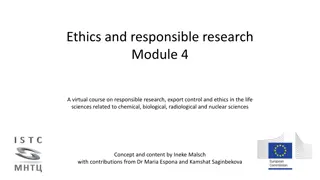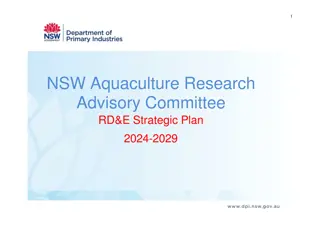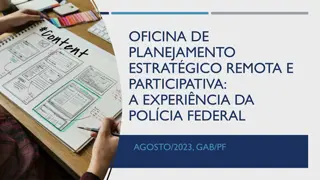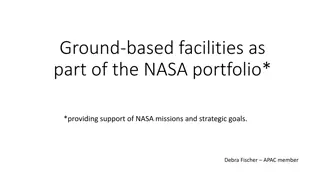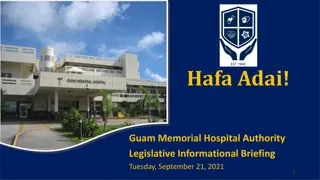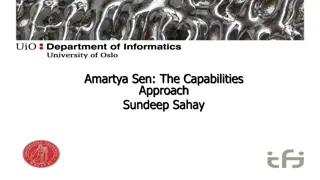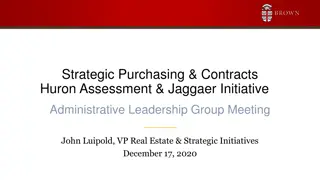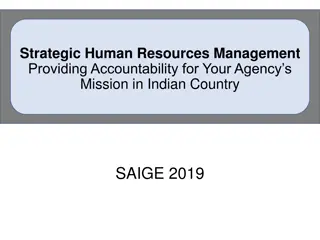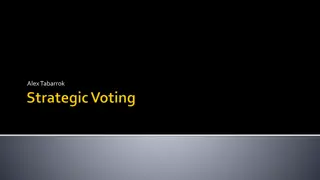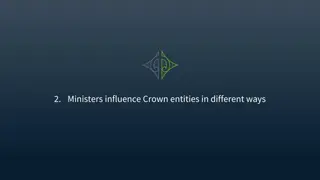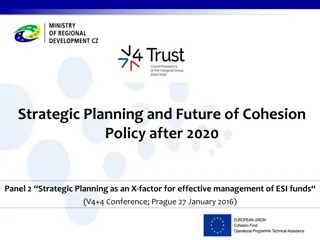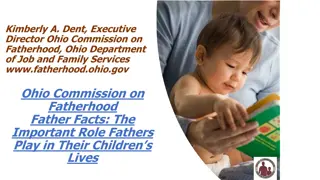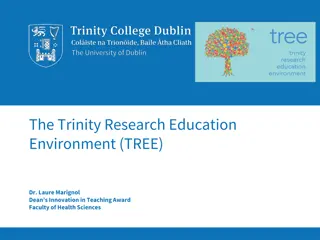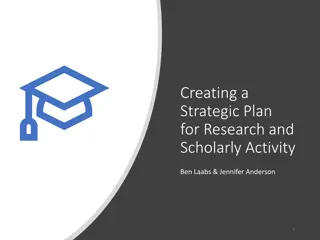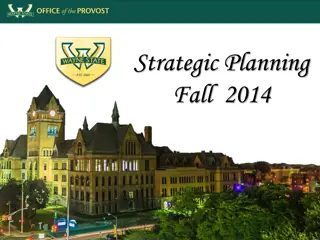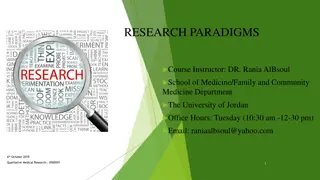Strategic Approach to Responsible Research Development
Strategic approach to research development covers the entire research lifecycle from identifying funding opportunities to managing awards. It discusses institutional research resources, grant lifecycle, funding sources, common funding mechanisms, and pathways to sponsored research, providing insights into various funding sources and mechanisms to support research endeavors effectively.
Download Presentation

Please find below an Image/Link to download the presentation.
The content on the website is provided AS IS for your information and personal use only. It may not be sold, licensed, or shared on other websites without obtaining consent from the author. Download presentation by click this link. If you encounter any issues during the download, it is possible that the publisher has removed the file from their server.
E N D
Presentation Transcript
RESPONSIBLE CONDUCT OF RESEARCH THE RESEARCH DEVELOPMENT LIFECYCLE: A Strategic Approach Amanda Spickard Associate Dean for Research Strategy and External Affairs Harvard T.H. Chan School of Public Health Leigh Halliday Assistant Director of Research Strategy and Development Harvard T.H. Chan School of Public Health
Institutional Research Resources and the Grant Lifecycle Research Administration Research Development Review & Submit Proposal Manage IP, Human Subjects Negotiate Award Develop Proposal Reporting & Closeout Award Management Find Funding Research Project
Funding Sources Internal (University) Funding Mechanisms Governmental funding agencies (National Institutes of Health, National Science Foundation, USAID) Philanthropic Institutions (foundations, multi-national organizations, non-governmental organizations) Corporate-Sponsored Research Individual Donors
Common Research Funding Mechanisms Research grants - Investigator decides the research to be designed or developed and the approach Dissertation grants Pilot grants Exploratory/Developmental Research Grants Investigator Initiated Research Project Fellowships/Career Development Grants Designed to expand your capacity for research & scholarship (many mentored) Cooperative Agreement - Similar to grants, but awarding Institute/Center (IC) and recipient have substantial involvement in carrying out project s activities Contracts - Sponsor decides the research to fill their perceived need and establishes detailed requirements
Pathways to Sponsored Research Investigator-Initiated Research Sponsor identifies general priority areas; investigators submit unsolicited proposals Use Foundation Directory Online to understand foundations philanthropic interests, funding trends Some sponsors clearly identify areas of specific funding interests NIH Cleared Concepts; Program Announcements At NIH Investigator-initiated comprise ~ 80% of awards Request for Applications (RFA) Solicited; set-aside of funds for a certain number of awards One-time/annually recurring competition to stimulate research in a specific priority area At NIH, if an RFA submission is not successful, a subsequent application should be submitted as a new application, not a resubmission ~ 10% of awards Request for Proposals (RFP) Solicited; largely used to solicit bids for contract work outline specific deliverables and how the work will be conducted
Understand Sponsor Interests & Priorities Use tools to understand sponsor priorities and funding trends: Foundation Directory Online NIH Reporter Sponsor Websites Assess alignment with Sponsor: General Area of Research Interest/Disease Targets Are there areas that the research either directly or indirectly relates to currently and/or that the research could potentially relate in the future? Research Population(s) Are there specific populations (communities, patients, scholars, etc.) on which the research is focused or that the research is likely to impact? Geographical Target(s) Does the research need to be targeted to a specific geography? Are there specific geographic areas in which you plan/hope to conduct your research (e.g., region, country)? What have they funded in the past: Disciplinary Focus of work Has work similar to yours been funded? Cultivate Relationships with Program Officers at Sponsoring Agency
Free and Subscription-Based Funding Opportunity Tools (Available to Harvard Researchers) Community of Science (pivot) Pivot combines the most comprehensive database of funding opportunities worth an estimated $33 billion with approximately 3 million pre-populated scholar profiles, drawing from Community of Scholars and Community of Science profiles. This allows researchers to search for opportunities as well as potential collaborators. Users can also set up search profiles that run on a weekly basis. Foundation Directory Online FDO has 50 years of experience in facilitating funding searches for researchers. This resource has 5 different subscription types that provide access to more than 120,000 foundations and corporate donors. NIH Weekly Guide The NIH Guide is a resource where scientists can browse active NIH funding opportunities that support basic or clinical biomedical, behavioral, and bioengineering research. grants.gov grants.gov is system that provides a centralized location for researchers seeking funding to search and apply for US federal funding opportunities. This system includes information on over 1,000 grant programs and vets grant applications for 26 federal grant-making agencies.
Pivot: Creating an Individualized Search Search Fields vs. Keywords Use broad search terms to begin then narrow down depending on results Do not enter keywords in both of these sections choose just one for better results. Activity Location Harvard Chan School researchers should select Massachusetts as their activity location Citizenship or Residency: Awards designated as being for U.S. institutions only are classified under "United States" Always check the unrestricted and unspecified boxes. Funding Type Select any or all types of projects for which you re seeking funding. Applicant Type attributes of both the individual and the institution. Harvard Chan School researchers should always check: Academic Institution and Nonprofit
Decoding NIH Grant Mechanisms Individual fellowship award (F31): Predoctoral Goal: Obtain individualized, mentored research training from outstanding faculty sponsors while conducting dissertation research. Individual fellowship award (F32): Postdoctoral Goal: Enhance the research training of promising postdoctoral candidates who have the potential to become productive, independent investigators. Mentored Research Scientist Development Award (K01) Goal: Provide protected time (3-5 years) for intensive research career development under the guidance of an experienced mentor, or sponsor, leading to research independence. Pathway to Independence Award (K99/R00) Goal: Help outstanding postdoctoral researchers complete the necessary mentored training to transition to independent, tenure-track or equivalent faculty positions.
Decoding NIH Research Grant Mechanisms (4 aims) (2 - 3 aims) (2 aims) R01 R21 Exploratory Research Grant R03 Investigator-Initiated Research Grant Small Research Grant Obtain preliminary data Explore a novel or high-risk research area Preliminary data may be included Hallmark of an established, independent investigator Often provides a steady stream of funding Must include preliminary data
Assessing Funding Opportunities Is this an opportunity that supports my needs? Is this a recurring or a one-time opportunity? Am I well positioned to compete now? Are there eligibility constraints? Institutional (Limited Submission Opportunities) limit on number of applications per institution PI constraints - may either limit ability to apply or require collaboration with eligible PI Is there sufficient time to align administrative and academic resources to submit a competitive grant?
Identify Funding Opportunities and Develop a Plan Plan for specific grant submission deadlines, and lay out specific timeline Then add 2-3+ months to timeline Consider the 6-9 month delay between proposal submission and award receipt Extra Prep Time needed for: Mentor Statements, Letters of Support Collaborations with other departments or institutions Large, complicated projects Newsworthy projects Complex compliance issues (Provost review)
Remember how important it is to understand how and by whom your proposal will be reviewed! Consider evaluation criteria requirements of the application seek guidance from Program Officer (PO) to understand criteria and how to respond Get as much information as possible about who will review your proposal Non-scientific reviewers Scientific review without content expertise Technical experts in your field Specific scientific reviewers know their scientific position
NIH Review and Funding Process Scientific Review Officers (SROs) Check completeness of application Assign applications to IRG and study section Assign reviewers to study sections Center for Scientific Review (CSR) Study Sections Review Applications Written critique and numerical scores Score/no score; percentile; summary statement Summary statement sent to relevant NIH IC CSR Study Section NIH ICs Make Funding Decision Based on scores and their priorities Your post-review contact is with IC Program Officer who usually attend study section reviews NIH Institute or Center
First Level Review Study Section 3 primary reviewers assigned Individually score proposal based on review criteria Give preliminary overall impact score (often determines which applications will be discussed in full at the meeting) For each application discussed, final impact score given by each eligible committee member including assigned reviewers Final overall impact score = mean of all members' final impact scores, multiplied by 10; 10 (high impact) through 90 (low impact). Applicants receive overall impact score, followed by summary of strengths, weaknesses and scores for each criteria Applications are percentiled - approximate percentage of applications that received better overall impact score from study section in past year
Second Level of Review Advisory Council or Board NIH program staff examine overall impact scores, percentile rankings (if applicable) and summary statements in light of IC s priorities. Provide grant-funding plan to the Advisory Board/Council, which considers IC s goals and needs and advises the Institute/Center director concerning funding decisions. The Institute/Center director makes final funding decisions based on staff and Advisory Council/Board advice.
Confessions of a Reviewer Reviewers are busy people; reviews are on top of their day job Impressions of the grant are formed early Of the people on the review panel (NIH = 20-30) Likely only 1or 2 are experts on your topic Likely only 3 have read your grant Reviewers read many grants for each review meeting; stories are easier to remember and to convey If you make the reviewer work harder (e.g. complex writing, minimal margins), they may be less generous in scoring
NIH Review Criteria (K & R Awards) K Review Criteria: Individual Impact R Review Criteria: Research Impact Overall Impact/priority score likelihood that the proposed career development and research plan will enhance the candidate s potential for a productive, independent scientific research career in a health-related field Overall Impact/priority score likelihood for the project to exert a sustained, powerful influence on the research field(s) involved Scored Criteria (1-9)** Significance Scored Criteria (1-9)** Candidate Career Development Plan/Career Goals & Objectives Research Plan Mentors Environment and Institutional Commitment Investigator/s Innovation Approach Environment
Key Questions to Guide Narrative Development Specific Aims: What are the overarching goals of your research? Significance: What is the scientific problem? If the aims are achieved how would the field be improved? Innovation: What is your idea for solving the problem? How does your approach advance the field? Impact: How likely is it that your study will succeed? What is the (sponsor s) return on investment?
Budget Estimate the project costs accurately. The budget should be complete and fully-loaded. Proposed expenditures must be allowable, appropriate, and reasonable in accordance with applicable cost principles. Actual expenses must then match up to the budget proposed, or permissions must be obtained from your grant officer for budget variances.
Costof Doing Research Direct Costs + Indirect Costs ----------------------- = Project Costs Also referred to as: -IDC -Overhead -F&A Direct Costs: Expenses that are specifically associated with a particular sponsored award and/or can be directly assigned to that award with a high degree of accuracy Indirect Costs: Expenses that cannot be specifically identified with a particular project or activity. Costs Normally Considered F&A Office Supplies Personal Computers ** Telephone & Fax Service (basic costs) Administrative & Clerical salaries & fringe Books & Subscriptions
Dos and Donts DO s DON TS Assess utility of funding mechanisms Chase $ Build in enough development time, then x 2 Underestimate timing re: admin/compliance issues Only submit fully-loaded budget request Low-ball budget won t make you more competitive Connect with PO early & often Be afraid of overstepping PO etiquette Work through research administrator; SPA reps are the authorized institutional officials NEVERsign an award notice or agreement of any kind!
Resources for Postdocs, Research Associates and Students LMA Research Admin Information and Resource Hub: http://hlcra.harvard.edu Links to Harvard policies, central admin contact info, institutional info Office of Education Scientific Writing Courses - Donald Halstead, Director of Writing Programs http://www.hsph.harvard.edu/educational-programs/non-credit-writing-courses/ 3 courses on writing and publishing research in high-impact peer reviewed journals Two limited to postdocs and research associates (weekly for 2 hours over 7-8 weeks; offered Fall 2 & Spring 2) Winter Session course open to all HSPH Postdoc NIH Grant-Writing Course:modeled on ORSD s Faculty Grant-Writing Short course Open to postdocs and research associates Four 3-hour sessions that focus on Aims, Significance, Innovation, and Approach Each participant is also appointed as the reviewer of another's work Contact Donald Halstead (dhalstea@hsph.harvard.edu) for registration details Office of Faculty Affairs - Postdoctoral Seminar on NIH Funding Mechanisms Two-hour seminar on Developing your Research Proposal and Navigating the NIH, offered Spring Semester
